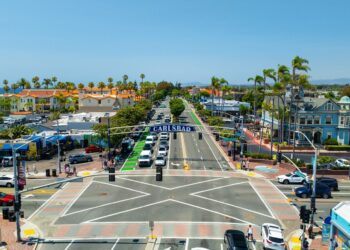Please use the sharing tools found via the email icon at the top of articles. Copying articles to share with others is a breach of FT.com T&Cs and Copyright Policy. Email [email protected] to buy additional rights. Subscribers may share up to 10 or 20 articles per month using the gift article service. More information can be found here.
https://www.ft.com/content/2a590c6a-9f8c-11e7-8cd4-932067fbf946
For Wolfgang Schäuble’s 75th birthday this week, Angela Merkel gave her long-serving finance minister some serious reading: the collected works of theologian Dietrich Bonhoeffer. Left unsaid was whether the books were a preparatory text for a new term in office — or a retirement gift. With Ms Merkel expected to win Sunday’s parliamentary election, speculation is focusing in Berlin on who will serve in her next government. And the top question is whether Mr Schäuble will remain in post, with much depending on the coalition that Ms Merkel can build. The issue matters beyond Germany’s borders. After eight years in the role, the sharp-tongued Mr Schäuble has consolidated his role as the EU’s most powerful economic policymaker. Though Ms Merkel crushed his own hopes of becoming chancellor, he is so close to her that in Berlin he is often known as “the co-chancellor”. In the rest of the EU, controversy rages over his hawkish approach to fiscal rectitude. But in Germany, his hardline commands wide support.
Please use the sharing tools found via the email icon at the top of articles. Copying articles to share with others is a breach of FT.com T&Cs and Copyright Policy. Email [email protected] to buy additional rights. Subscribers may share up to 10 or 20 articles per month using the gift article service. More information can be found here.
https://www.ft.com/content/2a590c6a-9f8c-11e7-8cd4-932067fbf946
“Wolfgang Schäuble is Germany’s most popular cabinet member after Merkel . . . . His [Christian Democratic Union] rightly sees him as one of its greatest assets and would like him to keep his job,” says Holger Schmieding, an economist at Berenberg Bank. Ms Merkel would almost certainly prefer to keep him. The chancellor recognises the respect he commands in the CDU, where his conservatism complements her liberal streak. And he would be useful in forthcoming talks on French President Emmanuel Macron’s eurozone reform plans: his hard-headed financial policies are matched by a commitment to the EU that is similar to Ms Merkel’s. However, Ms Merkel faces a fight from potential coalition partners, who view the finance ministry as a plum role. Under informal coalition building rules, if the biggest party chooses the chancellor the second largest party get the next turn to pick a post. The Social Democrats, the chancellor’s current partners, have held the foreign and economy ministries — but they know that the finance minister has had far more clout than either of their two top post-holders. Meanwhile, Ms Merkel’s main alternative to joining up again with the SPD would be a three-way coalition with the Greens and the liberal Free Democrats — the latter a business-oriented party that has its sights set on the finance ministry. “The FDP should not join any government if it does not have the finance minister,” Alexander Hahn, a senior official, has said. But any party aspiring to appoint one of its own to the job must present a convincing candidate. The SPD has no obvious frontrunner: its leader Martin Schulz, the former European Parliament president, and Sigmar Gabriel, Mr Schulz’s predecessor as party leader and the current foreign minister, are both seen in Berlin as better qualified for foreign affairs. Christian Lindner, the FDP’s youthful head, similarly has few credentials for finance. But Wolfgang Kubicki, a polished 65-year-old party veteran with long experience of the Bundestag finance committee, might come into the reckoning. Berenberg Bank’s Mr Schmieding predicts that Mr Schäuble would probably stay in office in a new coalition with the SPD but would “face a tougher fight” with an FDP/Green team. At his birthday celebration Ms Merkel praised Mr Schäuble as “a European to his heart” and “an architect of Germany reunification”, describing him variously as ambitious and demanding but also well-read, humorous and mischievous. If she did have to drop Mr Schäuble she is likely to grant him a dignified exit — if only to ensure he does not turn his acid wit against her. A possible role could be that of Bundestag Speaker, a job that could gain in importance with the emergence of the populist rightwing Alternative for Germany, which is set to win its first Bundestag seats and could end up as the official opposition. But a confidant of Mr Schäuble says he enjoys power — “taking big decisions”. The Speaker’s job would involve fewer of those. Mr Schäuble, wheelchair-bound since being shot in 1990 by a deranged man, has made clear he wants to stay. After 45 years in parliament and 19 in government he shows no signs of joining the few politicians who have voluntarily retired while at the top. He said nothing at his birthday party on his ambitions — but indicated he had no shortage of energy and was “already looking forward to his 80th”.
[“Source-ft”]















